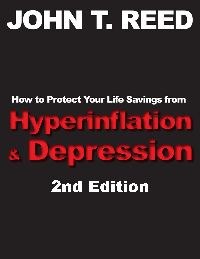My thoughts on the Brexit
Posted by John Reed on
Hooray for the Brits. An AP story stated with the words “U.K. is now entering uncharted waters.” Apparently, they got rid of all writers over about age 30.
The EU and its predecessor the Common Market only came into existence in 1993 and 1957 respectively. The Brits got along without them before they met them and they can get along without them now. U.K. was the world leader in the 18th, 19th, and early 20th centuries, all without the EU.
The EU and common market started like NAFTA—an agreement to lower trade barriers. But it metastasized to become a government legislating immigration policy, or abandonment of all immigration rules. Imagine if there was a NAFTA Parliament in which Americans had to get votes from the Canadians and Mexicans to have the immigration policies we want, and where Canada, Mexico, and a whole new extra U.S. Congress was churning out laws and regulations above and beyond the usual Congress churning out laws and regulations.
I’m happy mainly because of rejection of bigger government and open borders. My wife and I were disappointed when we went to London on our honeymoon in 1975. We found London had turned into the UN somewhere before. When I went back in 2008, I was shocked to learn that London had turned into Pakistan. Apparently, so are the Brits, finally. It’s a wonder they still had enough votes to leave. The Mayor of London is now Muslim and he recently banned ads with scantily-clad females.
A song there has the title “There will always be an England.” Perhaps it will remain true. I’m not sure they can still say, “There will always be a London.”
What does this mean financially? I only paid attention to Europe in terms of how it might help Americans protect themselves from possible hyperinflation, which is the subject of a book I wrote and sell.

I recommend that Americans hold money in savings accounts in Australia, Canada, and New Zealand and hold the currencies of Denmark, Sweden, and Switzerland in cash in Canada. Two of those countries are EU members: Denmark and Sweden. Switzerland is not. If I were going to add a seventh country, it would likely be Norway, which is also not an EU member.
I despise the Euro Zone (EZ), the countries where they use the euro currency. None of the countries whose currencies I recommend use the euro. Indeed, I believe the euro is about as likely to have hyperinflation as the dollar. I also believe we may get simultaneous hyperinflation in the EZ and US.
There is also the Schengen Area. U.K. is not in it. Ironically, if both the EZ and U.S. have hyperinflation, it would make sense for Americans to go to the EZ and vice versa—IF the persons in question have foreign currency that is worth a damn, most likely the currencies I recommend.
Foreigners with good currency, say Swiss francs (CHF), are treated like kings in hyperinflated countries—they can buy things at discounts, for example. The reason is capital controls will be enacted and they prohibit residents of the hyperinflated countries from possessing any but the hyperinflated curreny of the country in question. Americans in the US wlll only be allowed to have U.S. dollars and EZ residents in the EZ will only be allowed to have euros. So if the American and, say, a German, swap houses for 90 days, they can each spend their CHF in the other’s country and live well.
At the end of 90 days, because of both Schengen area and U.S. visa laws, they would have to leave. The American can return to the Schengen Area after another 90 days. It is not clear how long the German would have to stay out of the U.S. before they could start a new 90-day tourist visa.
Where should the American in Germany go? I have said the U.K. because it’s the nearest, decent non-Schengen area. Also, the micro states of Gibraltar, San Marco, and Andorra. They are also not in the Schengen Area.
Did I ever recommend the U.K. pound? Hell, no! They have the same too-high debt-to-GDP ratio problems as the U.S. and EZ.
The recommendations of my hyperinflation book that pertain to U.K. and Europe are UNCHANGED by the Brexit.
Economically, UK is basically far better off not being in the EU than landlocked Switzerland, and Switzerland is doing great.
Leaving the EU will create more trade friction between U.K. and EU countries, unless U.K. and EU create a NAFTA like agreement with each other. Chances of that? No idea. The whole world should be a free-trade area. Too many demagogues like Trump don’t want that and too many dopes support them.
Leaving the EU arguably increases the chances of better trade agreements with the U.S., notwithstanding Obama’s embarrassing threat to put U.K. “at the back of the queue.” U.K. people are past master of the art of trading internationally. They almost invented it.
Furthermore, I am no Europe expert, but I think there is an “Apres moi, le deluge” possibility. U.K. may just be the first to exit. They have already given funny names to many of the other possible “Brexit”-like movements: Italeave, Czechout, Nexit (Netherlands), Frexit (France), Departugal, Austrialater or Outstria, Finish, Grexit. Slovakout, Latervia, Byegium.
Common market?—good idea. EU parliament and euro?—disastrous ideas. The whole idea was to prevent another intra-European war. But that suggests a mere union was all that was necessary, that countries who warred against each other for a millennium can easily get along and determine each other’s laws and fiscal and monetary policies. Maybe expecting ancient enemies to suddenly get along was the stupid move, not Brexit.
Share this post
0 comment
